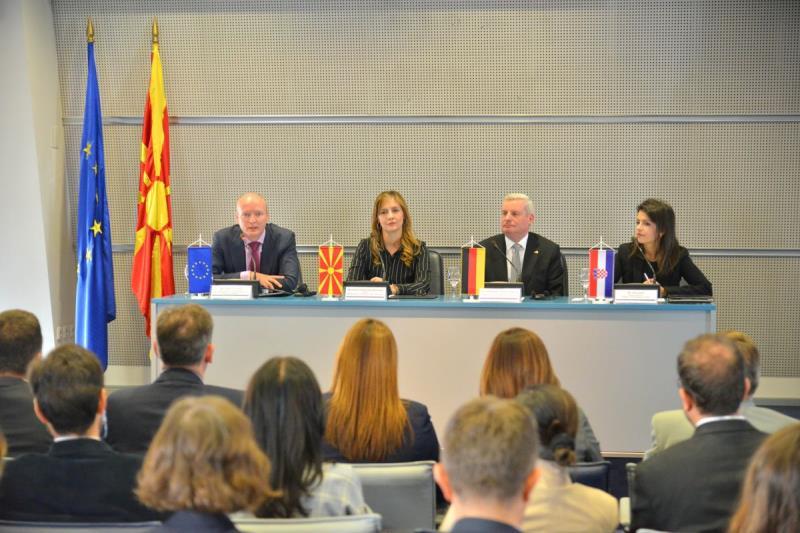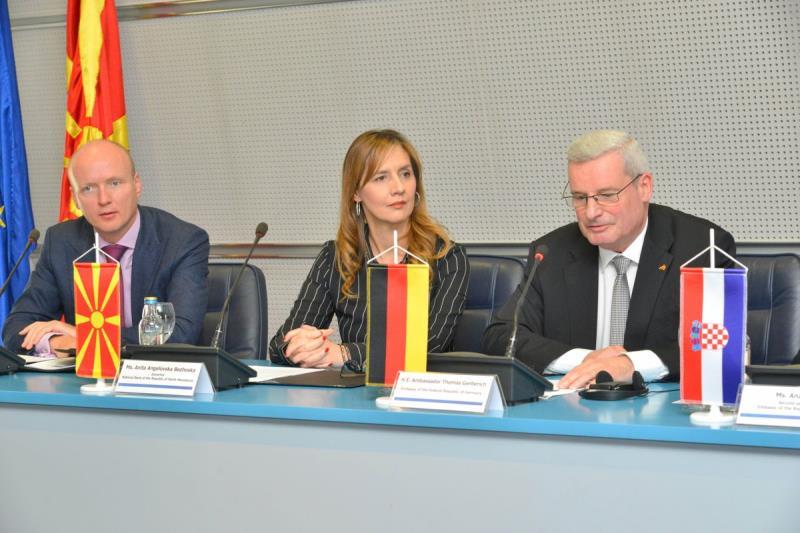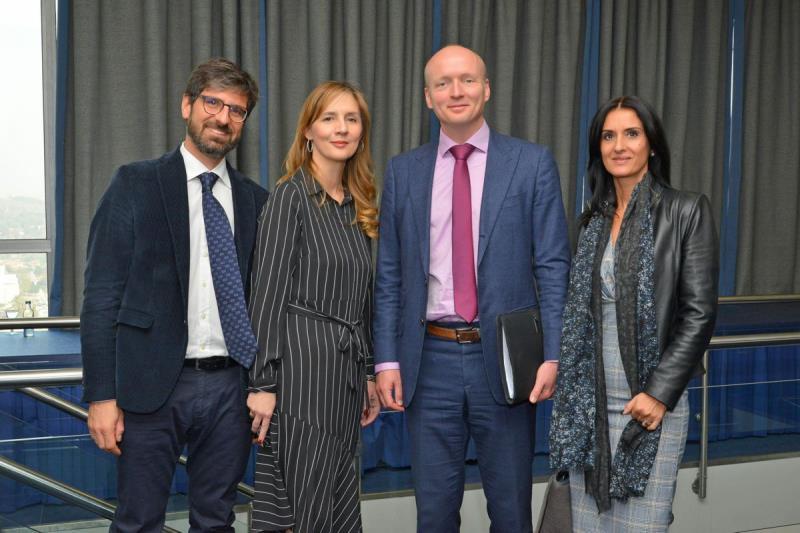
The EU Twinning Project “Strengthening of the institutional capacity of the National Bank in the process of its accession to the European System of Central Banks“ was launched. The main aim of this project funded by the European Union (EU) is to support our central bank in the further harmonization of the rules, regulations, policies and the operations with the standards of the European System of Central Banks (ESCB) and with the best international practices, in order to further maintain the macroeconomic and financial stability. In the implementation of the project activities, partners of the National Bank will be the central banks of Germany and Croatia, and part of the activities also envisages involvement of experts from the central banks of Belgium, Lithuania, Portugal, Romania and the Netherlands.
Today, the opening conference of the project was held, which presented in more details all planned activities to be implemented within the four project components - payment services and payment systems, banking regulations and supervision, financial accounts statistics and enhancement of know-how in policy analysis.
“By supporting this project, we have been given confidence that we will undoubtedly justify by delivering concrete results. Project activities encompass four central banking areas. It is particularly important that in the aftermath of the global economic crisis, these areas underwent major changes globally which pose new challenges for central banks. It is also necessary for us to keep up with these global trends.“, said among other things the Governor Anita Angelovska Bezhoska, in her keynote address in which she thanked for the given support to implement the project.
The Head of the Department of Economic Affairs, Institutional Strengthening and Cross-Border Cooperation at the Delegation of the EU in our country, Freek Janmaat, noted that the EU has been supporting the reforms efforts of the National Bank. “This new EU funded project aims to strengthen the institutional capacity of the National Bank to comply with the requirement of the European System of Central Banks. In particular the project will contribute to further enhancing the capacity and functions of the National Bank in the areas of payment systems and payment services, financial stability, supervision of financial services, economic analysis and research, and statistics. Among the main final objectives of the project is to further modernise the country’s payment services: concretely, consumers and businesses will benefit from better regulation and more competition thanks to an increased number of providers and reduced costs.”, said Janmaat.

At the Conference, the Ambassador of the Federal Republic of Germany, Thomas Gerberich and the Second Secretary of the Embassy of the Republic of Croatia, Ana Vučić, also delivered their keynote addresses. Gerberich said that “we must keep going and we have to continue to concentrate fully on the reform process which will finally lead to the full membership in the EU with the aim to offer opportunities and best living conditions for everybody. One of the key priorities of this reform process is the reform of the banking sector as part of the reform of the economic system. For that reason this Twinning Project will help to support the National Bank of the Republic of North Macedonia in maintaining the macroeconomic and financial system stability for the benefit of all economic agencies.”
Vučić referred to the support that in the entire past period Croatia has been providing to our country, through expertise within numerous projects focused on the activities that should be implemented within the Euro-integration processes, after which she expressed pleasure that they are partners in this project aimed at improving central-banking operations. "I strongly believe that capacity building is a true investment in the future of a country and its people. I, therefore, express my sincere support to all of the partners on this project. Your dedicated work will contribute to prosperity, stability and sustainable development of the Republic of North Macedonia.”, she said in the ending of her address.
Representatives of the project partners - the central banks of Germany and Croatia also addressed the Conference, after which the planned project activities were presented in more details by the project leaders.
Among the activities that will be implemented within the four project components, it is expected that both the National Bank and all economic agents in the country will enjoy their benefits.
The project “Strengthening of the institutional capacity of the National Bank in the process of its accession to the European System of Central Banks“ will last until the end of the next year. For its implementation, the EU has allocated 600.000 euros.
